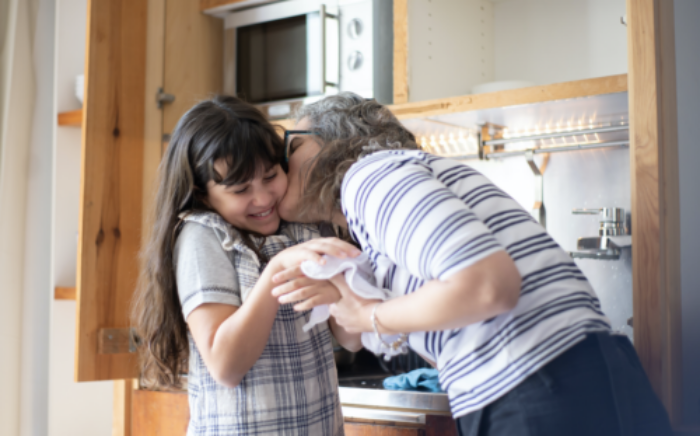Kurtz Psychology’s biannual group intensive for selective mutism – Mighty Mouth Kids Camp – is right around the corner! To ensure camper safety during the pandemic, we are thrilled to be hosting our camp virtually on our secure, online telehealth platform. Our Winter 2021 Mighty Mouth Kids Camp (MMK) will be the second time our practice has hosted the camp virtually. Since a “virtual camp” is a relatively new concept, many families have contacted us in recent months inquiring as to how such an intervention would work. Below are my answers to some of the most frequently asked questions we have received about MMK should you be considering signing your child up for a future in-person or virtual MMK!
Q: What should we expect to achieve after the completion of the camp for us as parents and for our child?
A: By the completion of camp, parents will have received 6 hours of training and consultation with expert clinicians in how best to treat and support their child with selective mutism. During these trainings, parents will connect with other families who have been through similar experiences – one of the most consistently reported “favorite” parts of camp for many families. These parent groups review the PCIT- SM skills we utilize to support brave talking during the camp week as well as how to support your child after camp in school and in the community to generalize their speech to other settings and situations. Parents will also be their child’s camp counselor throughout the week, sitting with their child during all the virtual activities. This helps parents get real-time practice in supporting their child in increasingly challenging brave talking tasks, ultimately resulting in their becoming a “take home therapist” by camp graduation.
By the completion of camp, campers will have received over 15 hours of exposure therapy (3 hours/day over 5 days in addition to pre-camp sessions). Over the course of the camp week, they will have spoken with over a dozen new adults and several new children. They will receive the opportunity to answer questions from adults and peers, use full sentences, ask questions to adults and peers, present Show and Tell and other presentations to the group, practice spontaneous speech, practice requesting needs (e.g., bathroom, help), and discuss emotions. This high intensity treatment allows children to build momentum in their brave talking in a short period of time, work that would typically take place in months of weekly treatment.
Q: How do we know that the virtual camp model will be effective?
A: This is a great question! While PCIT-SM has a research backing of its own (check it out at https://www.kurtzpsychology.com/selective-mutism/research-pcit-sm/), there unfortunately is a paucity of research on internet PCIT-SM. With that said, we were able to survey parents of our Summer 2020 Virtual Mighty Mouth Kids Camp to get a sense of their experiences. We are only beginning to analyze the results of the virtual PCIT-SM model, but these initial findings look promising:
- When surveyed about the camp week, 100% of parents that responded reported a moderate to large improvement in their children’s SM behavior during the virtual camp week.
- When surveyed 3-months post camp, 100% of the parents that responded reported that their children maintained the progress they had made in camp and/or continued to make progress beyond camp.
- When surveyed about parent training, 100% of parents who responded reported an increase in their confidence to effectively guide their children through SM exposures during and outside of camp.
- And when asked if they would feel comfortable recommending the virtual SM camp model to other parents of children with SM, 100% of our responding parents said yes.
Q: Our child is camera shy and uncomfortable with live videos, often running away from the screen. How would MMK address this? How will you ensure the children will engage with each other?
A: Our clinicians will facilitate several sessions with you and your child before the camp week to assess your child’s readiness for such a group intervention, prepare them for the camp week, and provide parents with preliminary coaching in the PCIT-SM skillset. In these sessions, we facilitate exposures to being on camera and speaking with someone new. The pre-camp parent training sessions will also prepare you with the skills you need to reinforce your child’s staying on camera and effectively prompt them to return to the camera or room should they walk away. Parents, counselors, and clinicians will be using the same set of skills to help children engage with one another by asking and answering questions and prompting for peer interactions. We somewhat expect children to wander from the screen from time to time due to needs for a movement break or as a result of their anxiety. Trust that you will be well prepared in how to handle this during the camp week. And as always, clinicians will be available to provide additional support during the camp day should any needs arise in this area.
Q: What is the typical daily schedule of your virtual camp?
A: Counselor & Caregiver Meeting (adults only)
Warmup & Morning Meeting
Break
Activity 1
Break
Activity 2
Q: On average, how many sessions does it take for a child to make big improvements?
A: Generally, every child’s response to SM treatment varies and is dependent on their presentation of anxiety in conjunction with the family’s ability to commit to living an “exposure-based lifestyle” in which children are practicing brave talking on a daily basis. With that said, MMK camp provides a high level of treatment in a short period of time, which generally helps kiddos to build momentum in using their voice with others. MMK also trains parents to be “take home therapists” to continue the work at home and in your local community. Many of the families that attend camp typically do some consultation post-camp, but otherwise may be able to continue the work on their own. Other families may require ongoing treatment to continue to make gains. Once we get to know your child and their needs, our clinicians will be able to give you some guidance as to what level of intervention your child may require.










